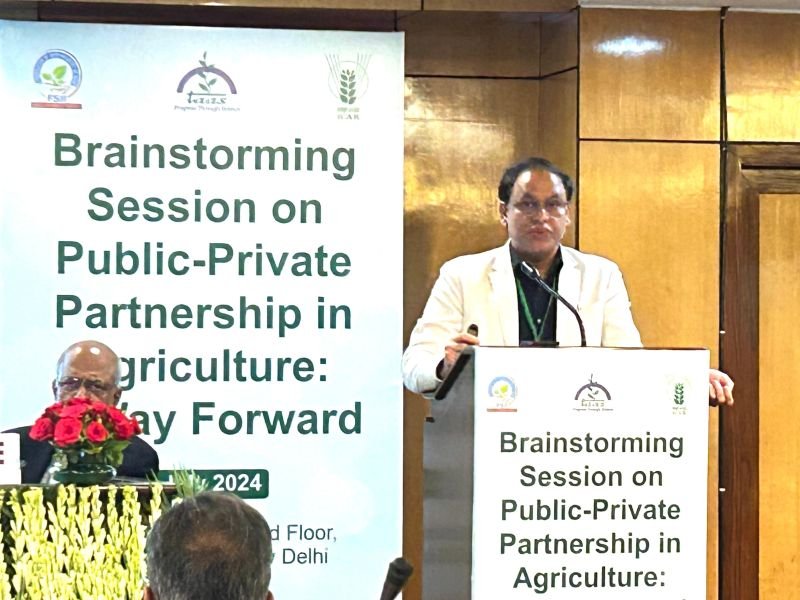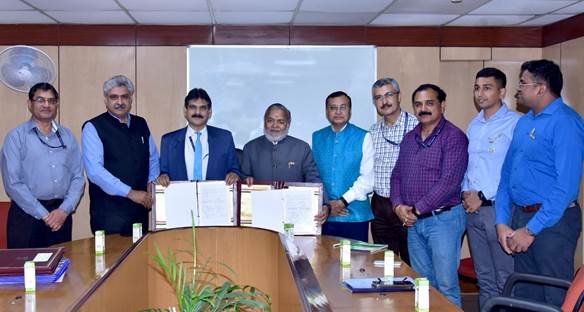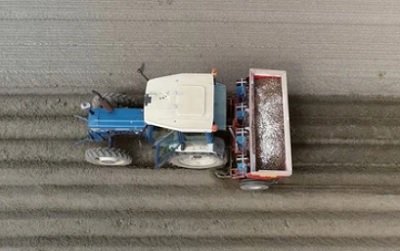Strong Public-Private Partnerships are inevitable to create a resilient agri-food system in India
Experts had a high-impact brainstorming session on “Public-Private Partnership in Agriculture: A Way Forward” organised by TAAS In collaboration with ICAR, FSII and NSAI.
Public private partnerships could hold the key to address many pressing challenges of agriculture including diffusion of innovation to farmers, scaling -up research and helping farmers get the right market linkages, experts said at a conference in New Delhi.
The Trust for Advancement of Agricultural Sciences (TAAS), in collaboration with the Indian Council of Agricultural Research (ICAR), the Federation of Seed Industry of India (FSII), and the National Seed Association of India (NSAI), organised a high-impact brainstorming session at the National Agricultural Science Complex (NASC), Pusa Campus titled “Public-Private Partnership in Agriculture: A Way Forward.”
Currently, India’s agricultural sector employs over 50 per cent of the country’s workforce and contributes about 17 per cent to the nation’s GDP. However, to sustain and boost this contribution, it is essential to adopt new technologies and practices. The private sector has shown tremendous potential in this regard, especially through advancements in biotechnology and improved seed varieties. By 2022, the adoption of genetically modified Bt Cotton had resulted in a 24 per cent increase in yield and a 50 per cent reduction in pesticide use, showcasing the transformative impact of private partnership.
Over 60 key stakeholders, including scientists, researchers, policy makers, and private sector representatives participated. The focus was on developing a clear Road Map to enhance Public-Private Partnerships (PPPs) in the agriculture sector to scale innovations for impact and benefit to farmers.
Dr RS Paroda, Founder Chairman, TAAS and Former Secretary DARE and DG, ICAR emphasized an urgent need for PPP collaboration, stating, “Indian agriculture is at a crossroads. To meet the increasing demand for food and to address the challenges of climate change, we must leverage the strengths of both public and private sectors. Effective PPPs are essential to upscale and outscale innovations for sustainable agriculture.” He further added “The current public agricultural research investment is grossly insufficient, therefore, there is a need to explore the options to enhance agricultural research investment in a partnership mode. We need to accelerate annual growth in agriculture to at least 4 per cent, thus contributing around USD 1 trillion from agriculture to achieve India’s projected USD 5 trillion economy”
The Chief Guest Dr T. Mohapatra, Chairperson, PPV&FRA emphasized that public-private partnerships are effective means to address the existing challenges and unlock new opportunities to enhance agricultural growth and development.
Ajai Rana, Chairman, FSII, highlighted the critical role of seed industry in transforming agriculture. “The private seed sector has already made significant contributions, especially in the area of genetically modified crops like Bt Cotton. However, there is immense potential for further advancements through strategic PPPs. Our goal is to develop and disseminate high-quality seed varieties that can revolutionize Indian agriculture,” he remarked.
Stakeholders were unanimous in realising considerable strength in both public and private research institutions. However, such potential can effectively be tapped through highly focused PPP Projects of national importance. What urgently effective collaboration in research, access and benefit sharing and the enabling policies.
Ram Kaundinya, Advisor, FSII, added, “Market-driven research and the adoption of advanced technologies such as genome editing are crucial. Through strengthened PPPs, we can ensure that innovations in high priority areas are not only developed but reach our farmers soon for enhancing productivity and profitability.”
Experts had a high-impact brainstorming session on



